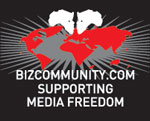Right2Know campaign plots way forward, Secrecy Bill under pressure
"People like us who lived under the apartheid regime know how dangerous secrecy bills are and how they have been used to conceal petty and major things like corruption, classifying medical records if your relative dies and things like running the CCB and so on," Ayesha Kajee, Freedom of Expression Institute (FXI) director, said.
"So we have to be very careful not to once again try to open the door to this Secrecy Bill," she warned.
Affect whole of society
The POIB, currently before Parliament, will not only affect the media, but the whole society of South Africa, including researchers and service delivery lobby groups, argues the Right2Know campaign.
Despite a few 'cosmetic' changes, critics believe the proposed legislation is still very much unconstitutional as it creates the impression that some very serious things are about to be hidden away from the public - a major blow to the free flow and access of information which is one of the cornerstones of a true democratic society.
"Commercial information will also be classified, so we might not know how much is being spent and so on," Gabriella Razzano, of the South Africa History and Archives (SAHA), said, adding that the bill comes at the time when there appears to be an assault on freedom of information and expression from all sides.
"Vague definitions in law are always a concern," Razzano added, fuelling the debate around what critics described as the most ambiguous and dangerous piece of legislation in post-apartheid SA.
Harmonise the consensus
The purpose of the meeting is also to harmonise the consensus among different working groups currently operating in the Western Cape and KwaZulu-Natal, and to fight with one voice as a national dialogue is due to take place in January 2011, coinciding with the reconvening of the parliamentary committee to prepare for the final draft.
Delegates from more than 20 organisations are attending the meeting, and organisations include the University of South Africa, Wits University, Foundation for Human Rights, SOS Support Public Broadcasting, Media Monitoring Africa (MMA), Soweto Electricity Committee and Anti-Privatisation Forum.
Prinola Govenden, head of media policy at Media Monitoring Africa, said: "We are very worried about the prospect of journalists and editors spending 25 years in jail if they publish classified information. So we must stand firm on this."
Launched in August this year, the Right2Know campaign claims to have succeeded in shifting the terms of the debate. "The minister of state security and the parliamentary committee dealing with the bill went from dismissive of criticism, to a panicked series of unscheduled ministerial appearances and committee meetings intended to spin or soften the bill, and rush it through Parliament," the campaign pointed out.
- Bizcommunity special section: special focus on media freedom
- Bizcommunity Twitterfall: #ZAmediafreedom
- Press Council of South Africa: Help make journalism in South Africa better
- Right2Know petition: www.right2know.org.za
- Avaaz.org petition: South Africa: democracy at risk
- MediaMattersZA: www.Facebook.com/MediaMattersZa and @MediaMattersZA
- Keep South Africa's Media Free: Facebook and @safreemedia
- SANEF: Media Freedom
- Freedomhouse.org: Freedom in the world
- Google News Search: Protection of Information Bill media appeals tribunal
- Twitter Search: ZAmediafreedom
- Google Blog Search: Protection of Information Bill media appeals tribunal

About Issa Sikiti da Silva
- Angola tense as journalists, protesting youth targeted by government - 1 Nov 2011
- Managing promotional resources: are TV broadcasters getting it right? - 1 Nov 2011
- Mbalula vs the media: privacy, dignity vs public interest - 31 Oct 2011
- Multimillion-rand Motorola Razr marketing campaign - 28 Oct 2011
- [Tech4Africa] Power failures, low bandwidth? Try cloud computing - 28 Oct 2011
View my profile and articles...
